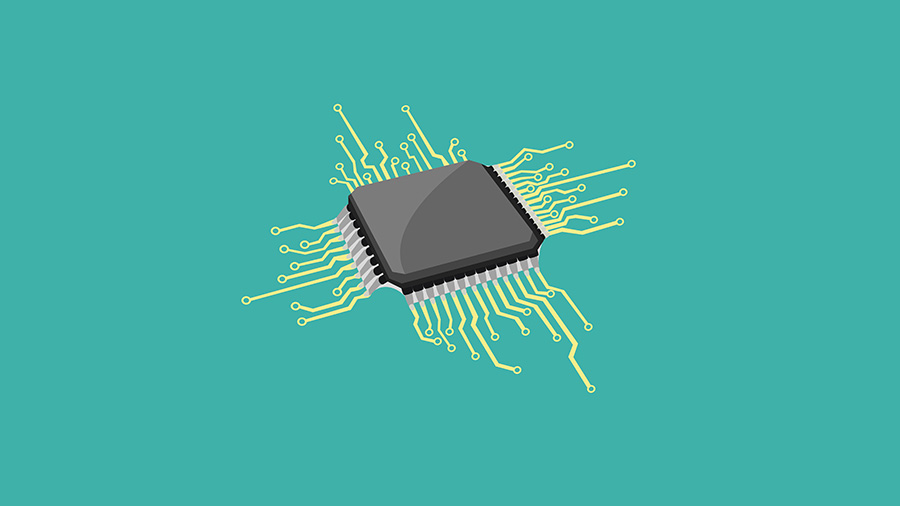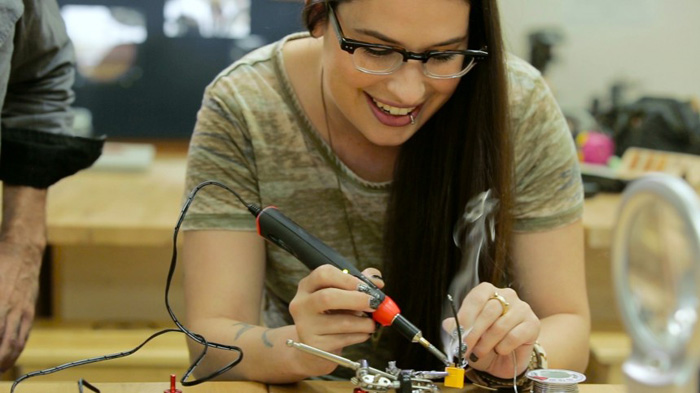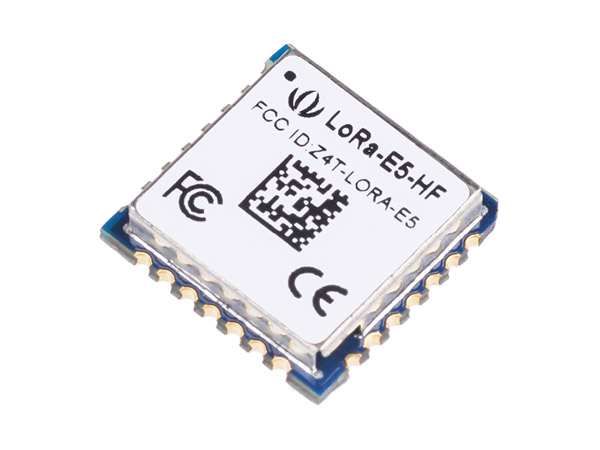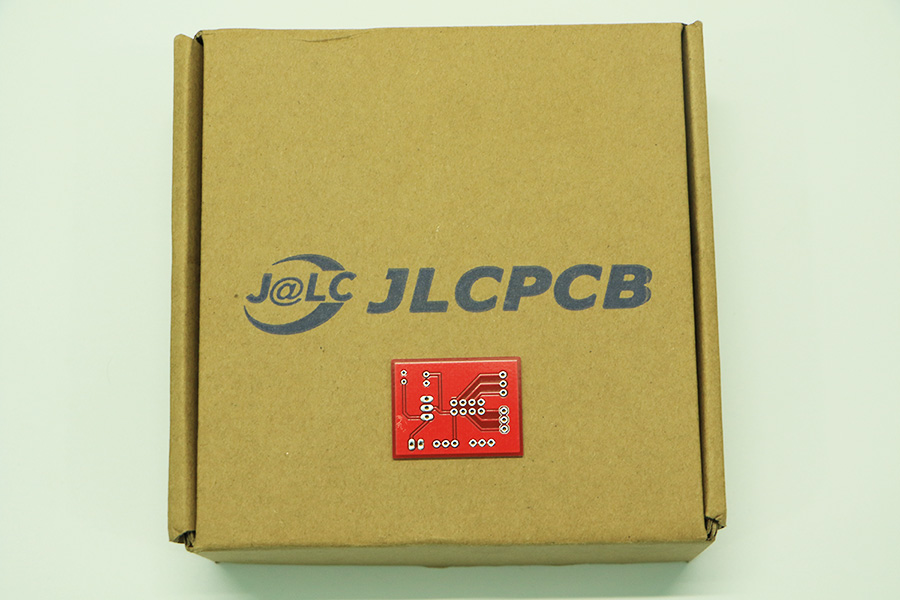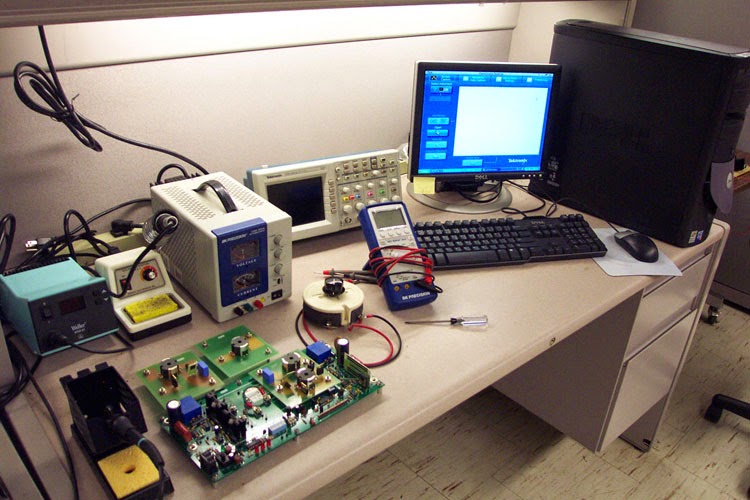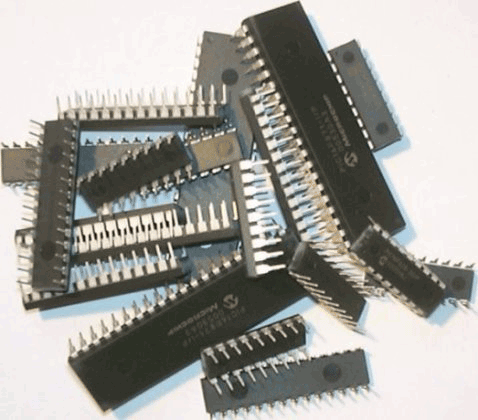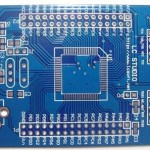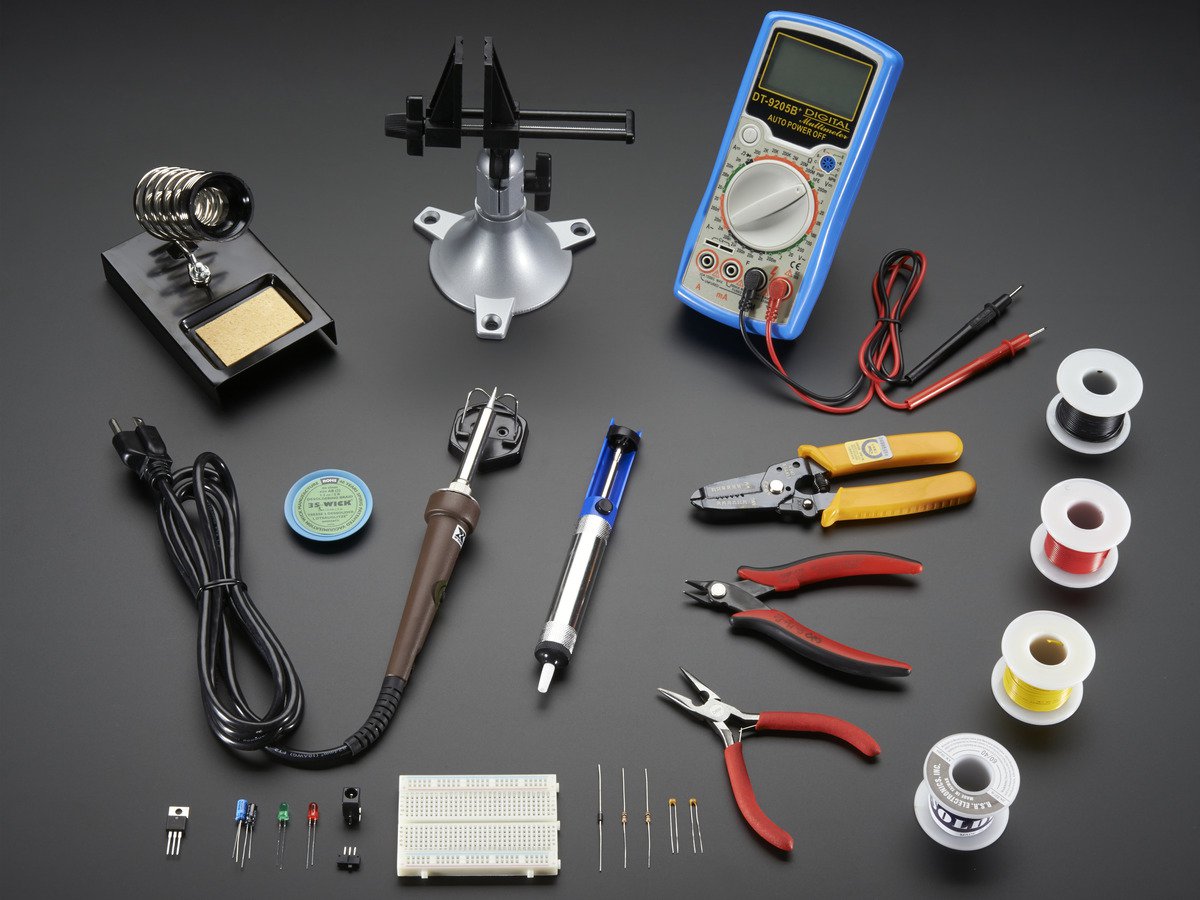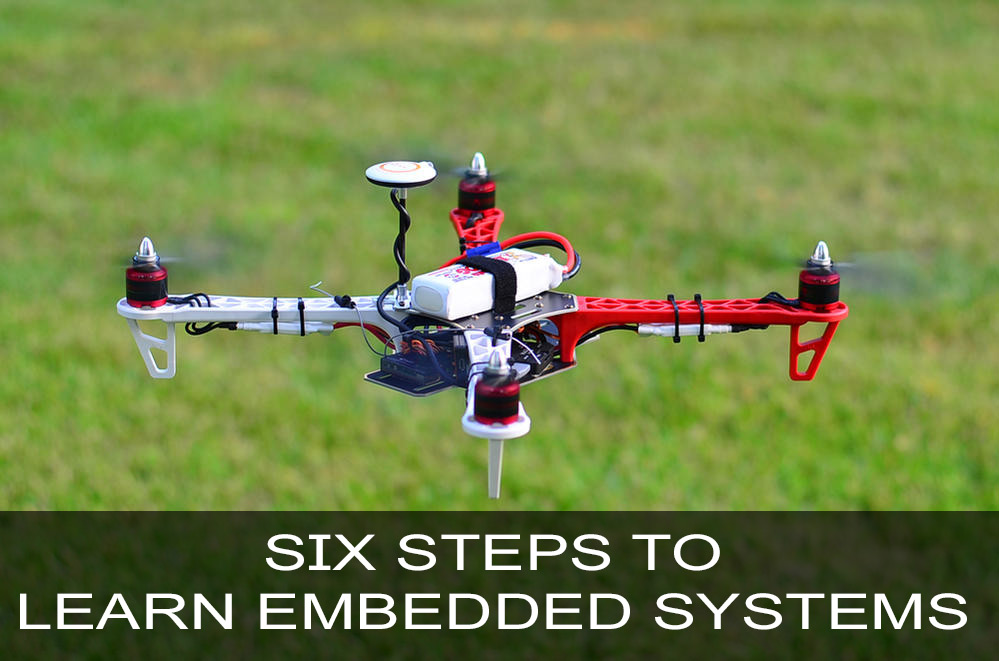Microcontrollers have been playing a key role in building equipment right from household to industrial usage. It’s simplicity, easy to learn and usage has made this a best choice to build projects, prototype or products. With the growth in development boards prototyping using microcontrollers has become even easier. This enabled a lot of hobbyists, enthusiasts and engineers to build innovative and amazing projects on their own. On the other hand availability of humongous amount of microcontrollers lead many enthusiasts to confusion on what to choose and how to choose. To help those we have we have compiled a list of popular microcontrollers based on following criteria
- Popularity
- Community
- Development boards
- Usage
9. ESP8266:
ESP8266 is a low-cost Wi-Fi module powered by 32-bit Tensilica microcontroller. The cost of this microcontroller is around $2. Refer the datasheet for this microcontroller.
Features:
- Clock Frequency- 24 to 52MHz
- External Flash – 1MB
- Operating Voltage – 2.5V to 3.6V
- Operating Current – 80mA, sleep mode-20uA
- Number of ADC pins – 1
- Number of PWM pins – 4
- 802.11 b/g/n protocol
- GPIO pins – 17
- RAM – 80KB user data and 32KB instruction RAM
- ADC Resolution – 10-bit
- Communication protocols – SDIO 2.0, SPI, UART
- I/O source current – 12mA (max)
Programming Software:
- Arduino IDE
- AT commands
Development board:
- ESP8266 Development board
8. MSP430G2452
MSP430G2452 has a powerful 16-bit RISC CPU manufactured by Texas Instruments MSP430 family. The cost of this microcontroller is around $2. Check out the datasheet of this Microcontroller.
Features:
- Number of Comparator channels – 8
- ADC channels – 8
- Number of GPIO’s pins – 16
- ADC Resolution – 10-Bit SAR
- Number of Timers – 1 (16-bit)
- Non-Volatile Memory – 8kB
- Communication protocols – 1 I2C, 1 SPI
- Low Supply Voltage Range – 1.8V – 3.6V
- Low-Frequency Oscillator-32-kHz Crystal and also external Digital Clock Source
- SRAM – 256kB
- Active Mode Power consumption – 220microA at 1MHz
Programming Software:
- Energia IDE
- DIP socket
Development board:
- MSP-EXP430G2 LaunchPad TI Development Board
7. nRF52832:
Nordiac nRf52832 is an ARM Cortex-M4 CPU. This is a mid-range member of nRF52 series SoC family. The cost is around $6. It is mainly used for ULP wireless applications and has become quite famous for it. Refer the datasheet of this microcontroller.
Features:
- Operating Frequency – 2.4 GHz
- Maximum Data rate – 2Mb/s
- Output power – 4dBm
- Operating Voltage – 1.7V to 3.6V
- Flash – 512kB
- RAM size – 64kB
- Communication protocols – I2C, SPI, UART
- Number of input/output pins – 32
- ADC Resolution – 12 bit
- Data Bus Width – 32bit
- ADC channels – 8
- Timers – 5 (32bit)
Programming Software:
- Zigbee Software
- Keil MDK A
Development board:
- nRF52832 Development Board
6. ATMEGA32U4-AU:
It is an 8-bit MCU AVR RISC based microcontroller from Microchip. This Microcontroller comes in two different packages. This Microcontroller is priced under $5. Refer to ATMEGA32u4 datasheet.
Features:
- Maximum Clock Frequency – 16MHz
- Supply Voltage – 2.7V to 5.5V
- Number of input/output pins – 26
- Flash Memory Size – 32kB
- RAM size – 2.5kB
- Number of PWM pins – 14
- Number of Timers – 5
- PWM Resolution- Programmable from 2 to 16 bits
- Number of ADC pins – 12
- ADC Resolution – 10
- Communication protocols-I2C, I2S, SPI, USART, USB
- On chip temperature sensor
Programming Software:
- Arduino IDE
- Platform IO
Development board:
- Pro Micro Atmega32u4-AU motherboard
- Pro Micro Leonardo R3
5. PIC16F877A:
PIC16F877A is an 8-bit controller from PIC family microcontrollers. The cost of this microcontroller is around $4. Refer the datasheet of this controller.
Features:
- Total number of Pins – 40
- Total number of ports – 5 (port A, port B, port C, port D, port E)
- Operating Voltage – 2 to 5.5V
- Number of input/output pins – 33
- Number of ADC pins – 14
- ADC Resolution – 10-bit
- Number of Comparators – 2
- Number of timers – 3
- Communication protocols – UART, SPI, I2C
- External Oscillator – up to 20Mhz
- Program Memory – 14KB
- RAM – 368 bytes
- EEPROM – 256 bytes
- Max PWM resolution – 10
- Support both hardware pin and timer interrupts
Pogramming Software:
- PICPgm
- MP lab
Development board:
- PIC Development Board
4. ATtiny85:
ATtiny85 is an 8-bit AVR microcontroller based on RISC CPU and is introduced by Microchip. The price of this controller is around $2. which is affordable to try it for any simple projects. Refer to ATtiny85 datasheet here.
Features:
- Total number of pins – 8
- CPU type – RISC 8-Bit AVR
- Operating Voltage – 1.8 – 5.5V
- Program Memory – 8K
- RAM Memory – 512Bytes
- EEPROM Memory – 512Bytes
- ADC Resolution – 10-Bit
- Number of ADC pins – 4
- Number of Comparators – 1
- GPIO’s – 6
- No of Timers – 2 8-bit timers
- Communication Protocols- SPI, I2C, and USART.
- Number of PWM pins – 4
- Maximum oscillator speed – Up to 20MHz
Programming software:
- Tiny AVR Programmer
- Arduino IDE
Development board:
- ATtiny85 Mini USB board
3. ESP32:
ESP32 is a low cost and power on a chip microcontroller with integrated Wi-Fi and dual-mode Bluetooth. This microcontroller is created and developed by Espressif Systems. It is powered by Tensilica Xtensa LX6 microprocessor. It costs around $3. Refer the ESP32 datasheet.
Features:
- Operating Voltage – 2.2V to 3.6V
- Available in two packages
- Total number of pins – 48
- GPIO pins- 34
- CPU speed – 240MHz
- Internal SRAM – 520kB
- External Flash – 4MB
- 11b/g/n Wi-Fi transceiver and Bluetooth 4.2/BLE
- Internal ROM- 448KB
- ADC channels – 18
- Number of DAC channels – 2
- Communication protocols – 3 UART , 4 SPI, 2 I2C and 2 I2S.
- Communication speed – 5Mbps
- It has 8KB RTC Fast memory and 8KB Slow memory
Programming software:
- Espressif IoT Development Framework(IDF)
- Platform IO Ecosystem and IDE
- Arduino IDE
Development board:
- ESP32 S2
- ESP32-PICO KIT
2. ATmega328:
It is a 8-bit AVR Microcontroller manufactured by Microchip. This microcontroller is priced around $3. It has an advanced RISC architecture and became very famous after the introduction of Arduino Uno. Refer the datasheet here.
Features:
- Operating Voltage – 1.8V to 5.5V
- Program Memory – 32KB
- CPU Speed (MIPS/DMIPS) – 20
- Digital Communication Peripherals – 1-UART,2-SPI, 1-I2C
- SRAM – 2KB
- EEPROM – 1KB
- ADC Operation pins – 8
- It has 3 builtin Timers – 2 of 8bit and 1 of 16bit
- ADC Resolution – 10bit
- PWM pins – 6
- Number of Analog pins – 6
- Number of Digital pins -14
Programming software:
- Arduino IDE
- PlatformIO
- Eclipse Arduino IDE
Development board:
Arduino Uno
1. STM32F103C8T6:
It is a 32-bit microcontroller from STMicroelectronics. It is based out of Cortex-M3 CPU Core architecture. It has become quite famous among enthusiasts for their low power consumption and sheer computational power. This controller costs around $1.80 per unit. Refer to the datasheet here.
Features:
- Clock frequency – 72 Mhz.
- Operating Voltage – 2.0 to 3.6v
- Communication protocols – 2 I2C channels, 2 SPI channels, 1 CAN bus, 2 USART, 1USB.
- Internal Flash – 64KB
- Number of Analog pins – 10
- Number of PWM pins – 15
- Quantization Level – 4096
- SRAM – 20KB
- GPIO’s – 32
- ADC Resolution – 12bits
- PWM Resolution – 16bit
- Debugging – Serial, JTAG.
IDE:
- Atollic True Studio
- STM32CubeIDE
Programming Software:
- STM32CubeProgrammer
- Keil U-Link 2
- Arduino IDE
Development board:
Blue Pill
Hope this article would have helped you pick microcontroller that suit your project. If you feel any other famous microcontroller is left out from this list. Do let us know about it in comment box below, we will add it to our list.

